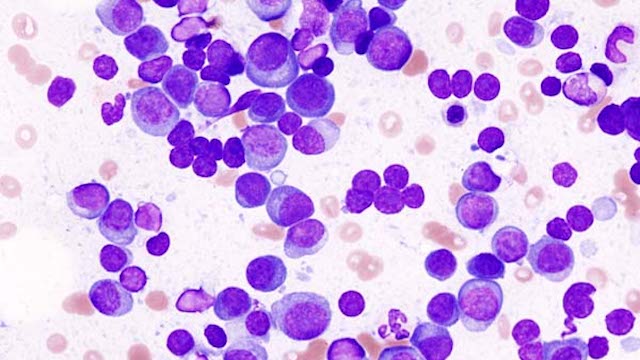 Multiple myeloma cellsWIKIMEDIA, KGHNanjing Legend Biotech’s chimeric antigen receptor T-cell (CAR T) therapy induced some level of remission within two months in 33 of 35 multiple myeloma patients in an ongoing clinical trial, according to results presented Monday (June 5) at the American Society of Clinical Oncology (ASCO) meeting.
Multiple myeloma cellsWIKIMEDIA, KGHNanjing Legend Biotech’s chimeric antigen receptor T-cell (CAR T) therapy induced some level of remission within two months in 33 of 35 multiple myeloma patients in an ongoing clinical trial, according to results presented Monday (June 5) at the American Society of Clinical Oncology (ASCO) meeting.
The company also reported that, of the first 19 patients to reach the four-month mark after treatment, 14 were in complete remission.
“These are impressive results” but time will tell if they last, Len Lichtenfeld, deputy chief medical officer of the American Cancer Society, told the Associated Press.
Multiple myeloma "is a disease you can treat pretty well with other drugs, but this could be long-term remission," Bruce Johnson, chief clinical research officer at Boston's Dana-Farber Cancer Institute and ASCO's incoming president, told Reuters.
The Chinese biotech’s CAR T candidate, LCAR-B38M, targets B-cell maturation proteins, which are found on the surface of multiple myeloma cells. Bluebird Bio and Celgene Corporation’s investigational CAR T therapy, bb2121, also targets these proteins, and the two companies also announced ...




















